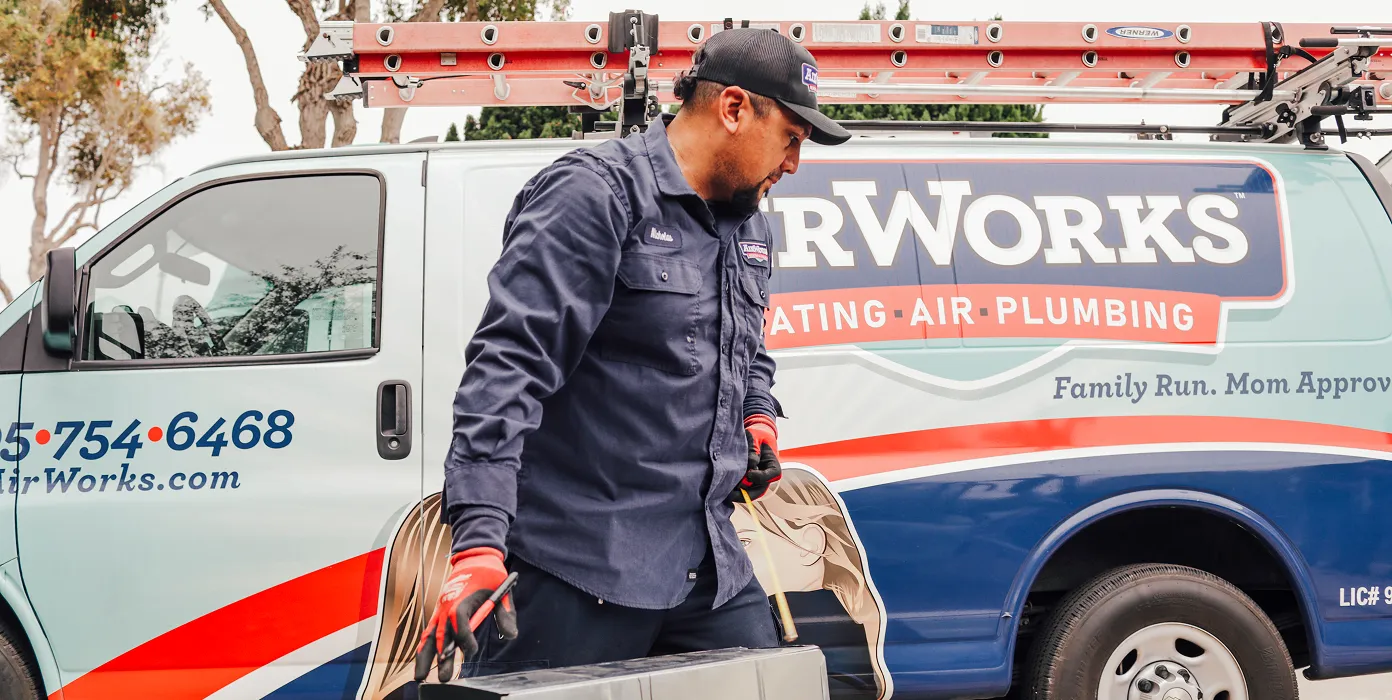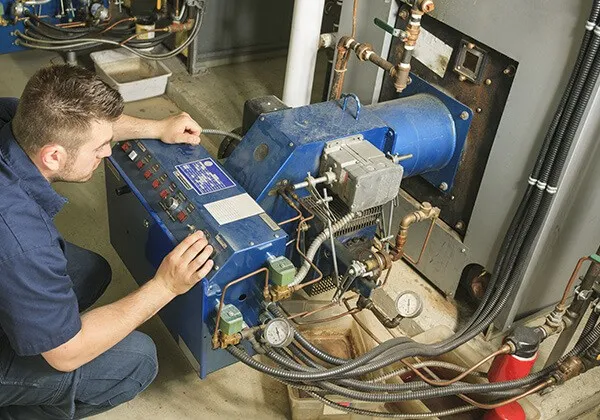Commercial Heater Repair in Agoura Hills, CA
Serving Ventura & Sacramento Counties

Commercial Heater Repair Agoura Hills, CA
When a commercial heating system fails, the consequences are immediate: uncomfortable tenants, interrupted operations, safety risks, and costly emergency work. Commercial Heater Repair Agoura Hills, CA focuses on fast, reliable diagnostics and repairs tailored to local businesses, property managers, and HOA communities. Whether you operate retail spaces, office suites, restaurants, or multifamily buildings in the Conejo Valley and Santa Monica Mountains area, understanding common failures, expected repair timelines, and preventative strategies helps reduce downtime and protect occupants.
Common commercial heater issues in Agoura Hills, CA
Commercial systems in Agoura Hills, CA face unique stressors: mild but sometimes chilly winter nights, dust and ash from regional wildfires, and intermittent windy conditions that introduce debris into outdoor units. These local factors contribute to a predictable set of failures:
- No heat or intermittent heating: failed ignition systems, gas valve issues, or control board faults.
- Short cycling or frequent on/off: clogged filters, improper airflow, faulty thermostat or oversized equipment.
- Ignition and pilot problems: worn ignitors, dirty burners, or failed flame sensors on gas furnaces and rooftop units.
- Blower motor or fan failures: worn bearings, belt breakage, or motor burnout—common in older commercial units.
- Heat pump failures: refrigerant leaks, compressor faults, or defrost control issues during cooler nights.
- Packaged rooftop unit problems: corrosion, condenser coil clogging from dust and ash, and electrical contactor failures.
- Boiler issues (where applicable): low water, pressure loss, pump failure, or scale buildup in hydronic systems.
- Controls and building automation faults: sensor drift, relay failures, and VAV box malfunctions affecting zone comfort.

Emergency diagnostics: triage to repair
Emergency heating repair in Agoura Hills, CA typically begins with a rapid triage to prioritize safety and restore heat where possible. A standard diagnostic workflow includes:
- Remote triage (when possible): gathering symptoms, recent events (power outage, smell of gas, unusual noises), and building impact to prioritize response.
- Safety first on arrival: check for gas leaks, carbon monoxide presence, and electrical hazards. If a hazard exists, isolate the system immediately.
- Visual and operational inspection: assess burners, ignition system, control board, wiring, filters, ductwork, outdoor coils, and condensate lines.
- Instrument testing: multimeter checks, combustion analysis for gas-fired equipment, refrigerant pressure checks for heat pumps, and infrared scans to find hot/cold spots.
- Documentation: clear, plain-language explanation of findings, safety risks, and recommended next steps.
For many commercial systems a full diagnostic takes 45–90 minutes. Larger rooftop systems or boilers may require extended evaluation or multi-technician inspections.
Typical repair timelines and what to expect
Repair timelines depend on the fault, parts availability, and system complexity. Typical ranges for common repairs:
- Thermostat or control board resets/replacements: 1–3 hours.
- Ignitor, flame sensor, or gas valve replacements: 2–4 hours (may require gas shutdown permits).
- Blower motor or fan assembly replacement: 2–6 hours depending on access and belt work.
- Refrigerant leak repair and recharge (heat pump): 1–2 days if parts and refrigerant need ordering and evacuation/recovery are required.
- Packaged rooftop component swap (compressor/contactor): same day to 1–2 days depending on crane access and unit model.
- Heat exchanger replacement or major furnace overhaul: 1–2 days; sometimes replacement of entire furnace is more economical.
- Boiler pump or valve replacement: 2–6 hours; larger boiler repairs can extend over multiple days.
Throughout repairs, strict safety procedures are followed: lockout/tagout for electrical work, gas shutoff and pressure testing for combustion systems, combustion efficiency and CO testing after service, and adherence to local code and permit requirements where applicable.
Parts availability and fleet inventory strategies
Commercial clients often benefit from proactive parts planning. Common approaches include:
- Technician truck stock: carrying high-failure items (motors, contactors, capacitors, ignitors, filters) to expedite same-day repairs.
- Local distributor partnerships: quick access to OEM and aftermarket parts from regional suppliers serving Ventura County and the greater Los Angeles area.
- Legacy equipment challenges: older or obsolete units sometimes require cross-referenced parts or lead time for special orders—planning critical spares can avoid extended downtime.
- Warranty and documentation: replacement parts should be accompanied by clear warranty terms and service records to track recurring failures.
For larger properties or multi-site portfolios in Agoura Hills, CA, maintaining a short list of critical spare parts on-site reduces emergency response time and business interruption.
Preventative maintenance to avoid future breakdowns
Preventative maintenance is the most effective way to reduce emergency repairs and extend equipment life. Recommended program elements for commercial heating systems:
- Biannual inspections: pre-season checks before the heating and cooling seasons to verify safe operation and efficiency.
- Filter and airflow management: scheduled filter replacements and duct inspections to prevent short cycling and motor strain—especially important after wildfire season when ash and soot accumulate.
- Combustion and CO testing: verify safe combustion, check heat exchanger integrity, and test for carbon monoxide on gas systems.
- Electrical and control checks: tighten connections, test relays and contactors, and recalibrate thermostats and building controls.
- Refrigerant and coil care for heat pumps: leak detection, coil cleaning, and performance verification.
- Record-keeping and trend analysis: track runtime, repairs, and recurring faults to identify failing components before they cause outages.
- Training and access: ensure building staff know basic shutdown procedures and how to report issues promptly.
A consistent a lowers energy costs, reduces emergency calls, and supports predictable budgeting for commercial properties.
Safety procedures and compliance
Safety is non-negotiable in commercial heater repair. Standard practices include:
- Gas leak detection and immediate isolation of unsafe systems.
- Combustion analysis and CO testing after any gas work.
- Proper ventilation, fire watch, and permit acquisition for work that modifies gas piping or combustion chambers.
- Licensed technicians performing work according to state and local codes.
- Clear service reports documenting work performed, safety checks, and any required follow-up.
Adherence to these procedures protects occupants, reduces liability, and ensures systems operate within manufacturer and code requirements.
Why timely commercial heater repair matters in Agoura Hills, CA
Prompt, expert repairs reduce tenant complaints, prevent lost revenue, and ensure fire and carbon monoxide risks are addressed quickly. In Agoura Hills, CA, local conditions—seasonal cooling, wind-driven dust, and proximity to wildfire zones—make routine inspections and rapid response especially valuable. A combination of efficient emergency diagnostics, reliable parts sourcing, and scheduled maintenance keeps commercial heating systems safe, efficient, and dependable for businesses and property managers across the area.
Timely Commercial Heater Repair in Agoura Hills, CA
Don’t let heating issues disrupt your business—AirWorks Solutions brings expert, punctual repairs straight to your door. Contact us to address urgent repairs, ask about special commercial repair rates, and discover how our independent, locally trusted team handles your needs with care.
Heat Restored—Book Your Commercial Heater Repair


